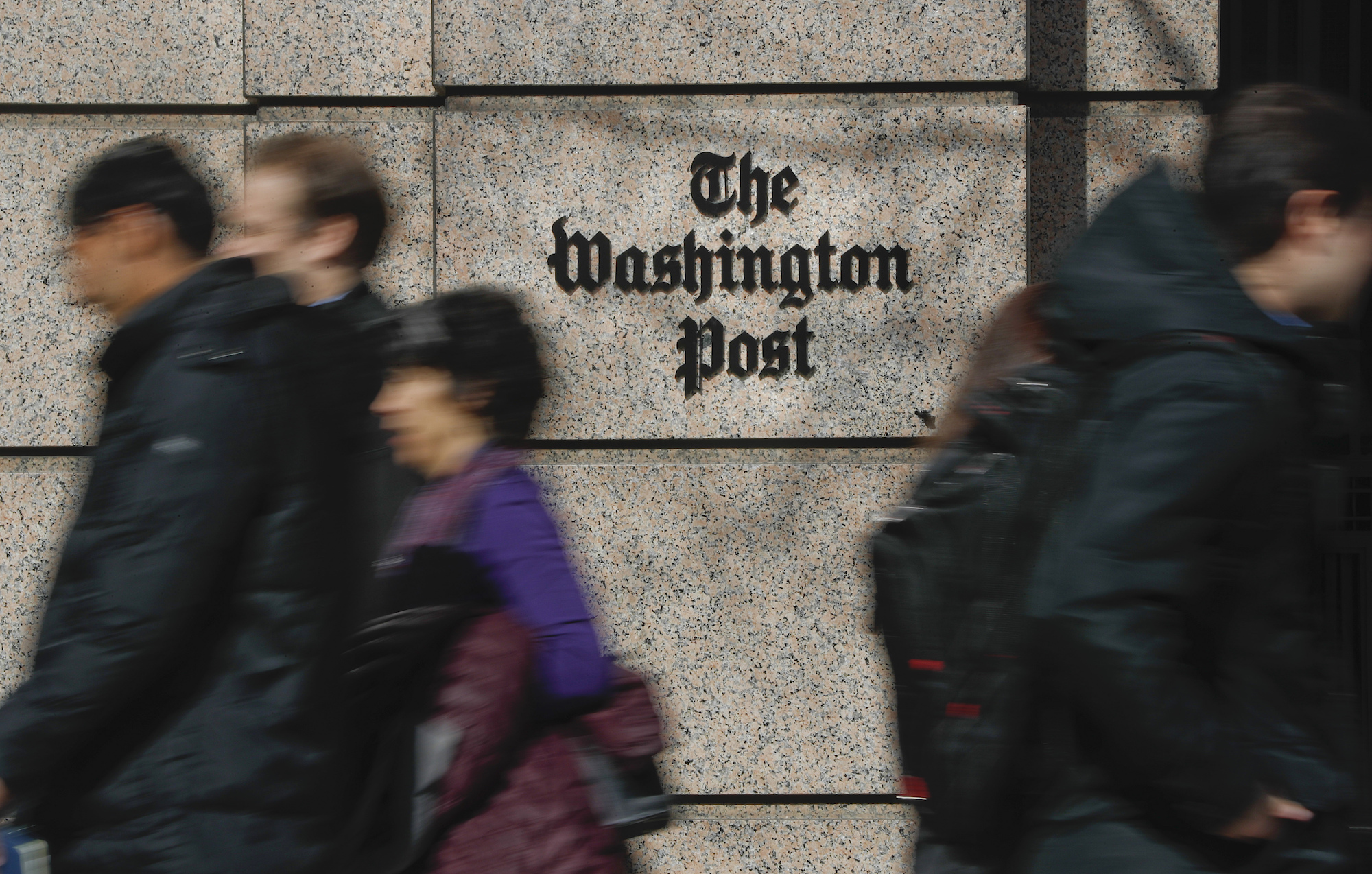Nine years after he bought the Washington Post, Jeff Bezos finally has a management team in place that is entirely his own.
Bezos’s early infusion of money positioned the Post as a serious contender in the ongoing national and international news competition. But can his leadership team keep that momentum going? With readership and revenue both declining—and Bezos evidently unwilling to make up the difference—the Post is considering reducing the newsroom by a hundred positions, or about 10 percent, according to the New York Times.
Here is the Bezos lineup.
FRED RYAN
A little over a year after he bought the Post, Bezos hired Washington insider Fred Ryan as publisher and chief executive.
In the Times article, Benjamin Mullin and Katie Robertson described Ryan as indecisive and a micromanager. They wrote that he monitors badge swipes to see who is coming into the office, and expressed concerns that lower videoconferencing activity on Fridays was a sign of reporters slacking off. (Positively correlating meetings with productivity became the subject of widespread derision on journalistic Twitter.)
Ryan also just lost Shailesh Prakash, the Post’s visionary chief technologist and the person most responsible for the extraordinary success of its publishing system. Bezos thought so highly of Prakash he appointed him to the board of Blue Origin, his space travel venture. Prakash is off to Google.
Ryan was previously publisher and chief executive at Politico, which he helped found in 2007. But he is first and foremost an acolyte of Ronald Reagan, for whom he began political work in 1980, serving on Reagan’s first presidential campaign, in his White House, and as his chief of staff. In 1995, Ryan became the chairman of the board of trustees of the Ronald Reagan Presidential Foundation, a position he has now held for twenty-seven years.
In April, Ryan welcomed Supreme Court Justice Amy Coney Barrett to an event at the Reagan Library, called her “extraordinary,” tossed her softball questions, and asked about the “growing concern about intolerance for free speech on America’s universities.”
He helped unveil the Nancy Reagan stamp at the beginning of Pride Month.
Ryan has made a handful of strong statements demanding accountability from the Saudi government for the murder and dismemberment of Post contributing columnist Jamal Khashoggi, and is the author of Wine and the White House: A History, a 456-page book published by the White House Historical Society.
SALLY BUZBEE
Buzbee, whom Bezos and Ryan hired as executive editor last year after Marty Baron retired, had a solid reputation at the Associated Press, where she previously served as executive editor. But she has certainly not been the change agent some hoped for at the Post.
Baron had come from the Boston Globe, where his shepherding of articles exposing systemic sexual abuse within the Catholic Church earned the paper a Pulitzer and turned him into a star played by Liev Schreiber in the Best Picture–winning 2016 movie Spotlight. Baron was also obstinate to a fault.
By contrast, as Andrew Beaujon reported for Washingtonian, there’s a “widespread theory” among Post veterans that Ryan recruited Buzbee—who hadn’t even applied for the job—so that “he’d finally have an executive editor who owed him.”
Taking over from Baron, Buzbee had the chance to turn the Post into the accountability-journalism, truth-to-power engine its readers crave, and to make the newsroom more inclusive and democratic. But profiling her for Vanity Fair, Charlotte Klein found Buzbee has yet to find her stride.
While Buzbee’s decision to stand up a “Democracy Team” at the Post was seen as a bold move, Klein reported that Buzbee “deflected” when asked whether threats to democracy are coming more from Republicans than Democrats. “I mean, if it’s Republicans who are doing it, if it’s Democrats who are doing it, it’s our job to call that out,” Buzbee said.
The culture of the Post under Baron strongly discouraged self-examination. Buzbee appears to be continuing that tradition. She chose to fire pugnacious newsroom whistleblower Felicia Sonmez in June, rather than welcome her challenge to redress newsroom inequities.
The New York Times reported that during a “contentious meeting” that same month, “some staff members told Buzbee that she had not yet earned their trust, according to several people among dozens in attendance.”
In her defense, as a Post reporter told me, “It’s been a very tough time for anyone to get their footing.”
DAVID SHIPLEY
In July, Bezos hired David Shipley, the former editor of Bloomberg News’s editorial pages, as the editorial page editor for the Post. Shipley, along with his deputy Tim O’Brien, temporarily left their jobs at Bloomberg Opinion to work on Mike Bloomberg’s disastrous presidential campaign. In a memo to Bloomberg News staff upon the announcement of Bloomberg’s presidential run, editor in chief John Micklethwait made it clear what Shipley’s marching orders had been, writing: “The place where Mike has had the most contact with Editorial is Bloomberg Opinion; our editorials have reflected his views” (emphasis added).
Ryan told Washington Post reporters that Shipley’s personal views and ideology were not major factors in his selection. “The Post has been noted for its longtime independence in its [editorial] voice, and we will remain an independent voice,” he insisted.
“I wasn’t looking at it in terms of wokeness or lack of wokeness,” Ryan told Puck’s Tara Palmieri, using what has become a pejorative taken up by enemies of inclusiveness.
Judging Shipley’s impact will be hard because under his predecessor, Fred Hiatt, Post editorials already reflected the official-Washington consensus—for instance, supporting the Iraq War and demanding deficit reduction by cutting spending on programs like Medicare and Social Security.
Dan Froomkin is editor of Press Watch, a non-profit media-criticism website. He was editor of washingtonpost.com before becoming its daily White House columnist. He has also worked at the Intercept and the Huffington Post.


